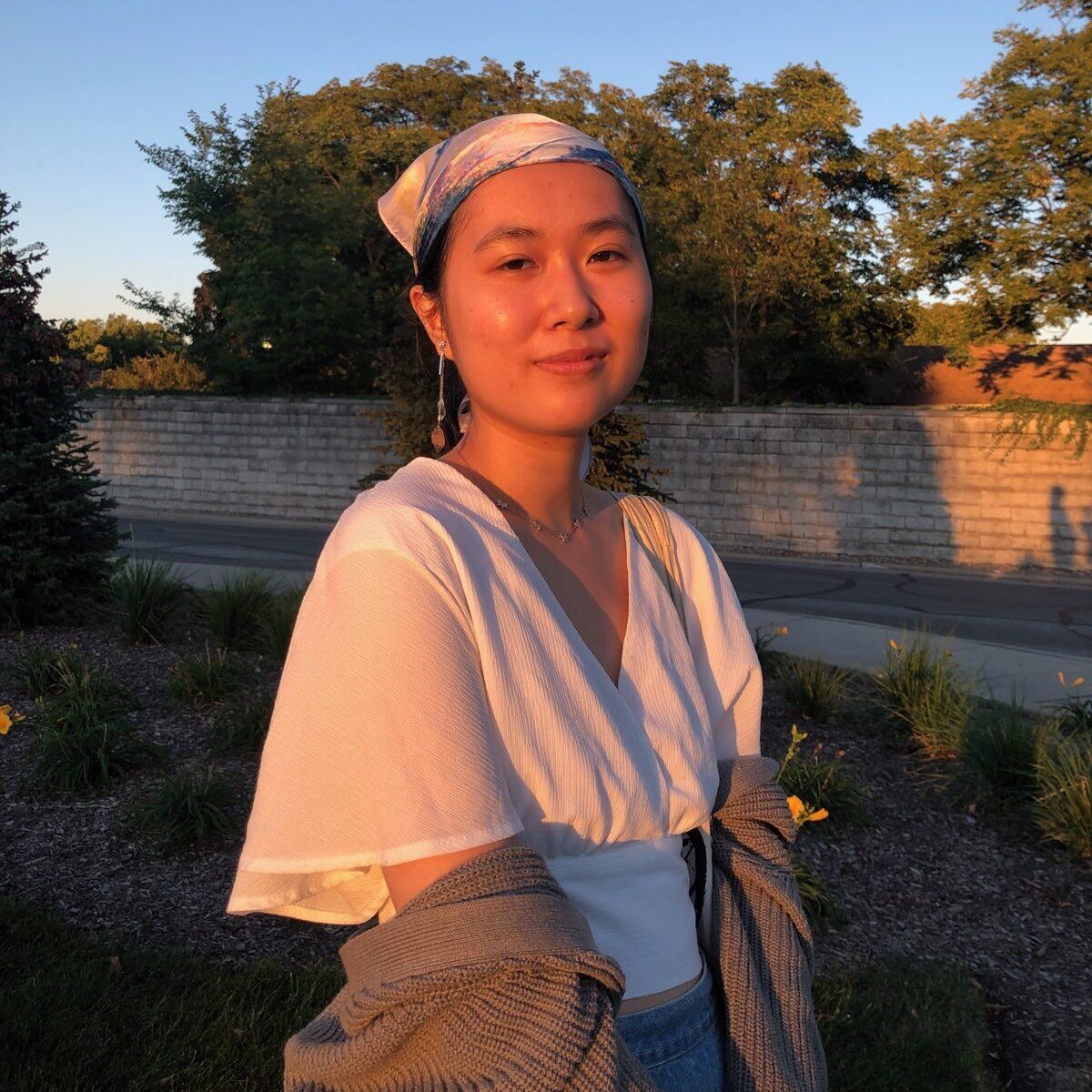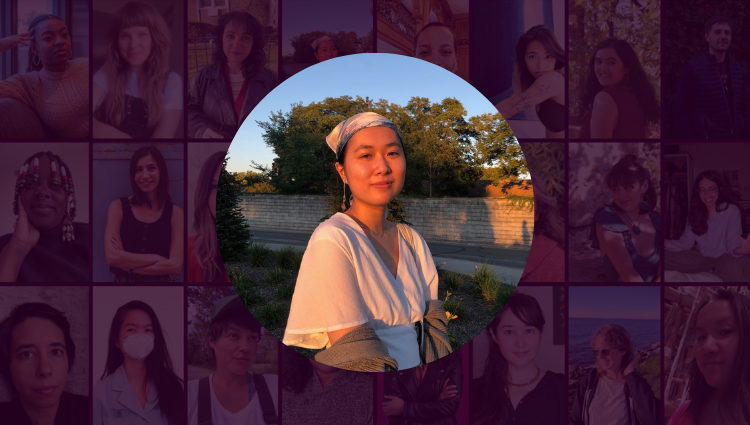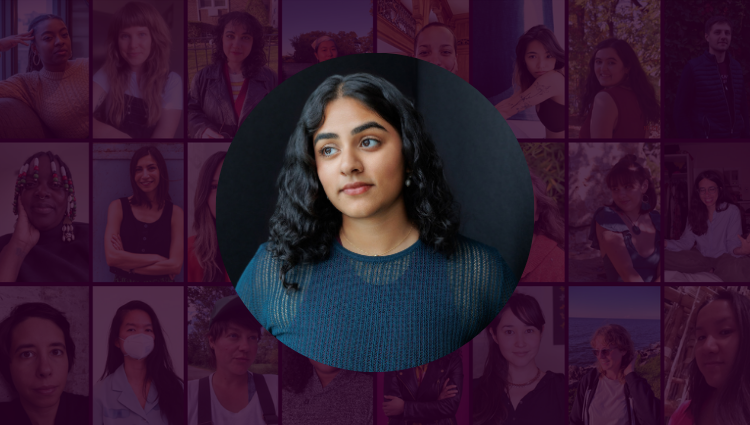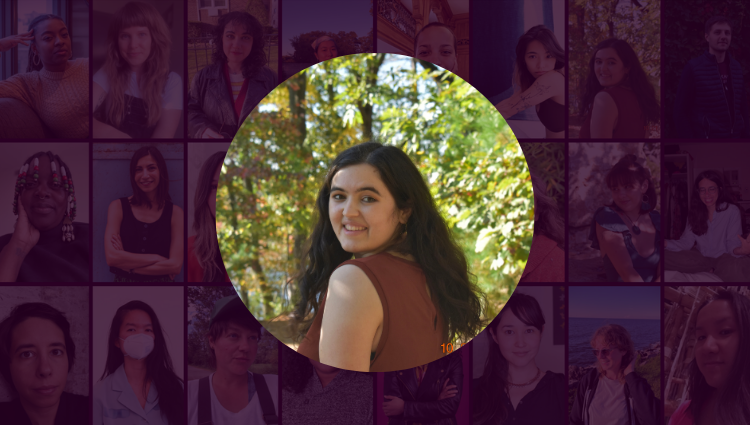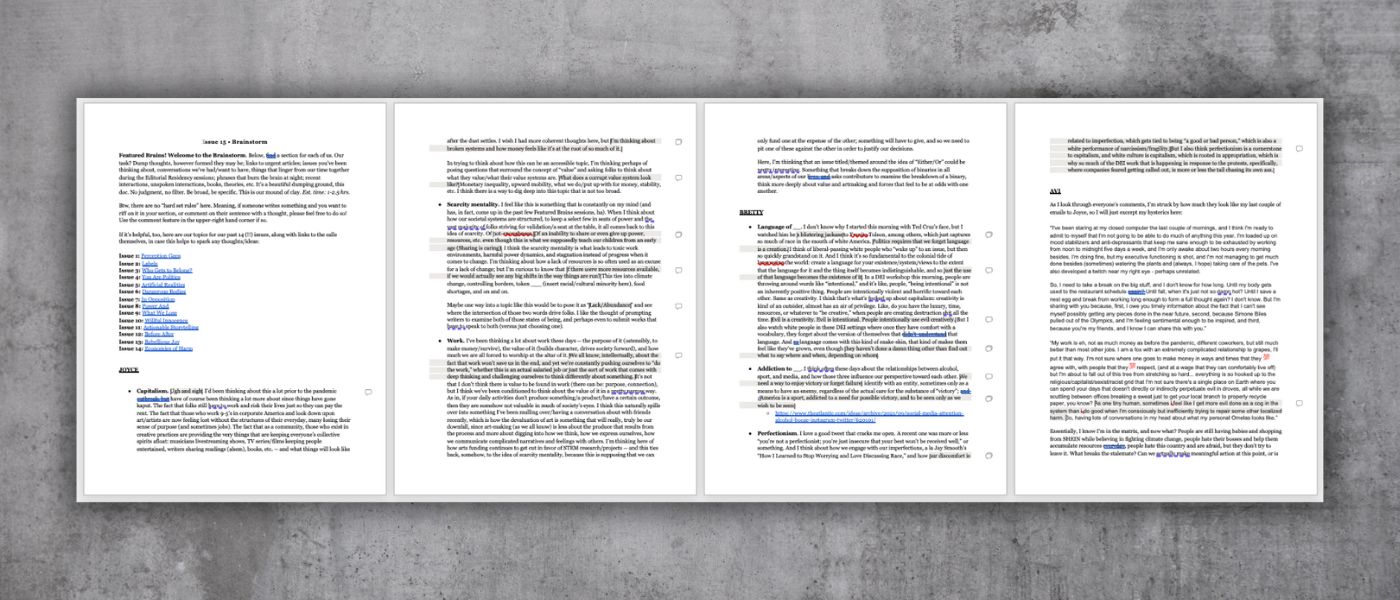A Q&A with Liana Fu
Liana Fu was one of our Summer 2024 Digital Residents. As a part of this program, we give our residents the option to publish an excerpt of their work, write a process piece, or have a Q&A with us. Here, Liana does a Q&A with Seventh Wave, giving us a glimpse into her words, work, and process. You can read more Spotlights here.
Seventh Wave: What is a question you’re asking yourself these days, and/or, what’s a question you are or your work is asking of your reader?
Liana: In what ways do we limit ourselves creatively by adhering to traditional modes of writing? How are we stopping ourselves from growing when we value publishing as the end-all-be-all? For a very long time, my ultimate goal was to publish a capital-B Book. I thought it would prove to myself I was a “good” writer, that I had the discipline to finish a long project. Now I’ve shifted focus; I’d still like to write a book one day, but I don’t view it as the end goal. More importantly, how do I feel about it? Can I be proud of the work? Is it helping me and the people around me grow? Am I putting something meaningful into the world?
Form is everything to me (“the medium is the message,” à la Marshall McLuhan.) Sometimes I think I prioritize it too much, but if the form isn’t good, I can’t write the content. Maybe this is the “poetic” part of my writing that tends to live between prose and poetry. In observing my process over the past few months, I’ve found that simply moving to a different program—from a Word document to Canva—can spark a lot for me creatively. The word document felt too restrictive, and once I was able to add images and arrange things without spatial restriction in Canva, new possibilities emerged. I’ve also been getting into book arts, so the value of material and labor of bookmaking is very precious to me. It challenges me to think about the book not just as a vessel for content, but as an art piece in itself. In the age of mass publishing and capitalism and excess, I want to slow down and appreciate the labor of making a beautiful book. Writing is so much more than the words—I think of the graphic designers, typesetters, letterpress printers, editors, and papermakers.
TSW: What’s a mantra, motto, or piece of advice that you have in mind these days when you are writing or creating? And/or tell about a writing routine or ritual that keeps you beginning.
Liana: First, process over product. Over the past few years I’ve been trying to deprogram myself from the toxic things I’ve learned in college and the publishing industry. You don’t have to write every day. Writing isn’t about publishing or selling something. Winning awards and grants doesn’t correlate to the quality of someone’s work. Writing is an artistic practice, and it should be sustainable, joyful, and meaningful (Ariana Brown’s writing philosophy.) Sometimes I think there’s something wrong with me if the writing doesn’t feel easy, but writing is actually very hard, and the hard things are worth doing, even if no one ever sees it.
Second, be honest with yourself. I recently experienced this strange anxiety about my writing—I wasn’t writing a lot, so I thought I’d “run out” of ideas for nonfiction and poetry. I considered writing fiction to feel inspired again. I was talking to my friend Urvi about this, who is an incredible writer, and she asked: why do you want to write fiction when your nonfiction and poetry is good? I think I said I wasn’t feeling inspired by my work anymore. I wasn’t being completely honest with myself in that moment, because what I really wanted was to do what everyone else was doing—sell a fiction book. I thought I was less of a legitimate writer for not writing fiction, but I knew deep down that I didn’t feel called to it at all. So now I’ve just doubled down on what I feel moved to do, which is creative nonfiction and poetry. And experimenting with form. I’m also interacting more with the archives as I explore curatorial work. Maybe I’ll feel drawn to fiction in the future.
Third, it’s okay to make mistakes. I’m a perfectionist, as capitalism intended, so this was a hard thing for me to learn (and I’m still learning). Celine Sciamma, director of Portrait of a Lady on Fire and a big inspiration for me, acknowledged in an interview that her past projects were collaborating with patriarchy instead of resisting it. She used to think of herself as a reformist, not a revolutionary. Her political growth is what allowed Portrait to become a truly feminist film. I believe transformation isn’t possible without acknowledging our mistakes, because that’s how we change. Art can’t be separated from the artist, it’s a reflection of who we are—our desires, anxieties, dreams. What I write and stand by today could change tomorrow. I look back at my past work and cringe, but I also admire my own conviction. I would not be here without trying new things, failing, and believing in myself.
TSW: What’s a question you wish someone would ask you?
Liana: What is your creative process? I personally love hearing artists talk about their process because it feels like you’re getting a behind-the-scenes look at how things are made. I’m a big fan of The Creative Independent because they interview artists about process and their relationship to labor. In my process, I get inspired by the archives—objects, events, people, documents. I start making connections around themes I see in my own life, or things I’ve observed about the world. Then I start “collecting” things into documents—images, sentences, quotes. Usually, after that, something starts to take shape. I think of it like a raccoon scavenging for food, or a curator putting together an exhibit. My process (and my metaphor for it) is still a work in progress. I’m working on a zine about it now for some upcoming tabling festivals, so hopefully I’ll have more clarity about it soon.
Whenever I read fiction, a genre that is so elusive to me, I ask myself: how did they do it? Art can seem very mysterious and inaccessible sometimes, especially in the fine art world, but at the end of the day it’s also work anyone is capable of doing. I’m learning to carry the imaginative and practical sides of writing. Yes I’ll get inspired and type something fully-formed in my notes app at 4am, but also, how do I make writing a consistent practice even when it feels bad? I’m at the stage in my life where a lot of things are shifting for me with new jobs and career interests. I’ve noticed I spend way too much time applying to things like residencies and mentorships. Yes these are potentially beneficial opportunities for my art, but in the thick of it I forget about my own writing. How can I bring the same disciplined energy I dedicate for applications towards writing and creating? That’s what I’m struggling with currently.
